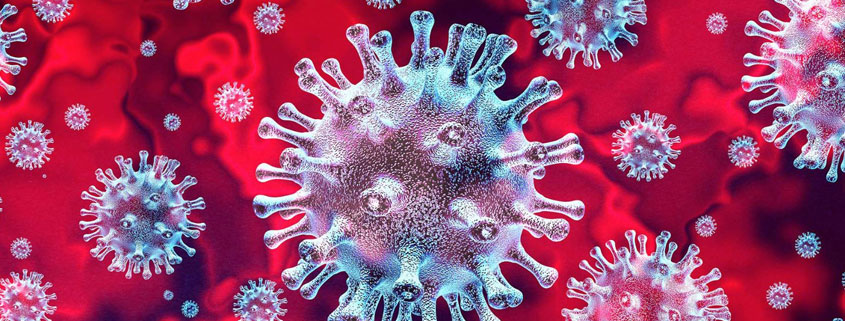A Silent Aftershock of a Global Pandemic
At MetroLagu.vin, we recognize that while COVID-19 brought visible challenges to public health and economies, it also unleashed a quieter but equally devastating force: a surge in mental health disorders across the world.
The virus’s physical impact has been meticulously measured in infection rates and mortality statistics.
But the emotional and psychological toll — the anxiety, depression, trauma, and grief left in its wake — demands our equal attention and compassionate response.
The true legacy of the pandemic will be shaped not just by how we healed bodies, but by how we cared for hearts and minds.
🧠 The Mental Health Impact of COVID-19: A Global Crisis
Studies show an alarming rise in mental health disorders since the onset of the pandemic:
-
Anxiety Disorders: Cases increased significantly due to health fears, economic instability, and social isolation.
-
Depression: Prolonged lockdowns, grief from loss, and societal disruption have driven depression rates to historic highs.
-
Post-Traumatic Stress (PTS): Frontline workers, survivors, and families of victims are experiencing lingering psychological trauma.
-
Substance Abuse: Many turned to alcohol, drugs, or addictive behaviors to cope with overwhelming stress.
-
Loneliness and Isolation: Reduced social contact created fertile ground for emotional desolation, especially among vulnerable populations like the elderly.
The pandemic has not only exposed existing cracks in mental health systems — it has deepened them.
🌍 Who Has Been Most Affected?
While COVID-19 touched every demographic, certain groups experienced disproportionate psychological burdens:
-
Healthcare Workers: Facing constant exposure to trauma, exhaustion, and moral injury.
-
Young Adults: Disrupted education, social milestones, and job prospects heightened anxiety and depression among Gen Z and Millennials.
-
Low-Income Communities: Economic instability exacerbated emotional distress in already vulnerable populations.
-
Children and Adolescents: Developmental disruptions, social isolation, and family stressors shaped a generation grappling with unseen wounds.
-
Those with Pre-Existing Mental Health Conditions: Many experienced worsening symptoms with reduced access to therapy and support.
The emotional pandemic did not respect borders, wealth, or status — it was, and remains, universal.
🛡️ Causes: Why COVID-19 Deeply Affected Mental Health
Several intertwined forces contributed to the widespread mental health impact:
-
Uncertainty: Prolonged unknowns around health, work, education, and social norms created chronic stress.
-
Grief and Loss: Millions mourned loved ones, routines, opportunities, and former identities.
-
Social Disconnection: Isolation stripped away the protective buffers of community, celebration, and collective resilience.
-
Financial Strain: Job losses and economic downturns compounded psychological distress.
-
Information Overload: Constant exposure to alarming news without reprieve magnified fear and helplessness.
In combination, these factors created a perfect storm of emotional exhaustion across society.
🧘 Moving Forward: Healing from the Invisible Wounds
At MetroLagu.vin, we believe that healing is an art — one that requires both personal commitment and collective compassion.
Strategies for navigating post-pandemic mental health include:
1. Prioritize Emotional Wellness
-
Recognize that mental health is foundational, not secondary, to overall well-being.
-
Integrate mindfulness, therapy, and self-care into daily life, not just emergencies.
2. Destigmatize Mental Health Conversations
-
Normalize seeking help as an act of strength, not weakness.
-
Cultivate environments — at home, at work, in society — where emotional honesty is welcomed and honored.
3. Rebuild Social Connections
-
Invest in meaningful relationships.
-
Small rituals — dinners, conversations, walks — rebuild the invisible architecture of emotional resilience.
4. Support Vulnerable Populations
-
Advocate for mental health access for underserved communities.
-
Ensure that recovery is inclusive, compassionate, and equitable.
5. Practice Gentle Living
-
Embrace slower, intentional living.
-
Allow time for grieving, adapting, forgiving, and imagining anew.
Healing is not linear. It is not hurried. It is sacred.
🌟 Lessons for a Post-Pandemic World
The pandemic left an indelible mark — but it also illuminated timeless truths:
-
Connection matters more than commerce.
-
Well-being is the foundation of progress.
-
Kindness is a form of leadership.
-
Slowing down can be a source of strength, not weakness.
At MetroLagu.vin, we envision a future where emotional intelligence, compassion, and collective care become the cornerstones of enlightened society.
✨A Time for Healing and Reimagining
The world was irrevocably changed by COVID-19.
But within every loss lies the seed of renewal — and within every wound, the invitation to deeper humanity.
Let us not simply rebuild.
Let us reimagine — with wisdom, with tenderness, with creativity.
Because the greatest act of resilience is not just to survive — it is to live beautifully, meaningfully, and generously once again.
📬 Stay Connected to the Journey of Healing
Subscribe to MetroLagu.vin for curated insights on emotional wellness, personal growth, elegant living, and crafting a resilient, beautiful life.



